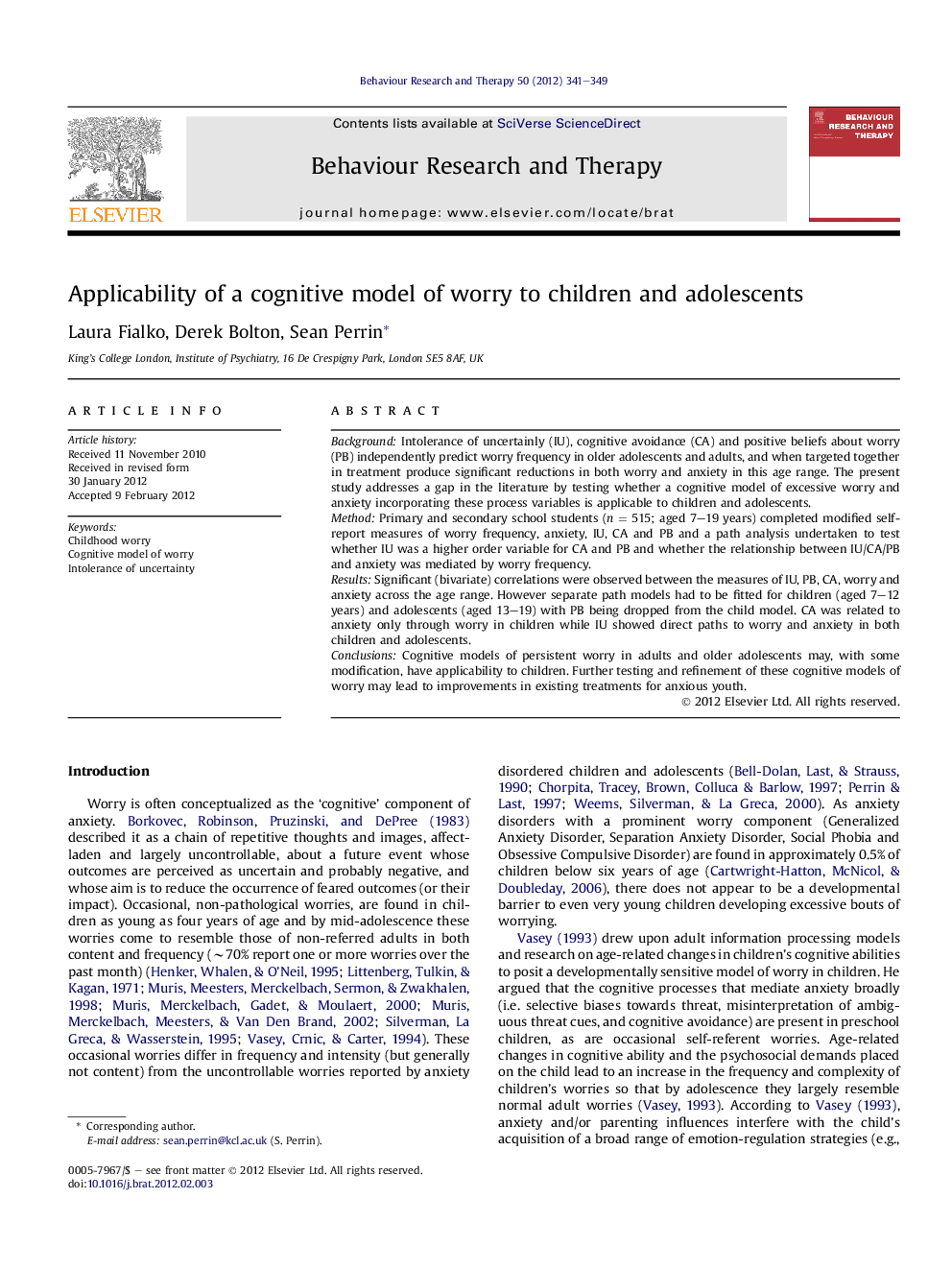| Article ID | Journal | Published Year | Pages | File Type |
|---|---|---|---|---|
| 901993 | Behaviour Research and Therapy | 2012 | 9 Pages |
BackgroundIntolerance of uncertainly (IU), cognitive avoidance (CA) and positive beliefs about worry (PB) independently predict worry frequency in older adolescents and adults, and when targeted together in treatment produce significant reductions in both worry and anxiety in this age range. The present study addresses a gap in the literature by testing whether a cognitive model of excessive worry and anxiety incorporating these process variables is applicable to children and adolescents.MethodPrimary and secondary school students (n = 515; aged 7–19 years) completed modified self-report measures of worry frequency, anxiety, IU, CA and PB and a path analysis undertaken to test whether IU was a higher order variable for CA and PB and whether the relationship between IU/CA/PB and anxiety was mediated by worry frequency.ResultsSignificant (bivariate) correlations were observed between the measures of IU, PB, CA, worry and anxiety across the age range. However separate path models had to be fitted for children (aged 7–12 years) and adolescents (aged 13–19) with PB being dropped from the child model. CA was related to anxiety only through worry in children while IU showed direct paths to worry and anxiety in both children and adolescents.ConclusionsCognitive models of persistent worry in adults and older adolescents may, with some modification, have applicability to children. Further testing and refinement of these cognitive models of worry may lead to improvements in existing treatments for anxious youth.
► We test the applicability of a cognitive model of worry to children. ► Self-report measures given to a large sample of non-referred youth. ► Cognitive model explains large percentage of worry/anxiety in teens. ► Cognitive model requires significant adaptation for use with children. ► Cognitive model of worry may be used to treat anxious youth.
